Latest in Mortgage News, COVID-19, and Economic Recovery
Victor Anasimiv • June 24, 2020

Although the volume of news over the last month has been pretty tame in comparison to when COVID-19 initially hit, there has still been a lot going on. If you find yourself wondering about the current state of affairs as it relates to real estate, mortgage financing, and the recovery of our economy mid and post-pandemic, you’ve come to the right place!
Here is a quick recap, a look forward, and links to many good sources of information!
Questionable economic outlook.
Back in the third week of May, the head of the Canadian Mortgage and Housing Corporation (CMHC) made some pretty gloomy predictions.
These Included a potential decrease in house prices of 18%, a jump in mortgage deferrals by 20% from 12% by September, and a debt-to-GDP ratio jump from 99% to 130% by Q3.
However, this particular economic outlook wasn’t widely accepted in the mortgage industry and was seen more as an absolute worst-case scenario. Despite this, CMHC went ahead and made changes to their underwriting guidelines
and qualifying criteria for insured mortgages.
CMHC changes policy for insured mortgages.
On June 4th, 2020, CMHC announced that they would be making changes to their underwriting qualification effective July 1st 2020.
Essentially, they have lowered the buying power of anyone looking for an insured mortgage by up to 10% by limiting the Gross/Total Debt Servicing (GDS/TDS) ratios to 35% and 42% respectively. They changed the credit score requirements to a minimum of 680 for at least one borrower. While they also removed non-traditional sources of down payment that increase indebtedness, (borrowed downpayment). A gifted downpayment from a family member is still acceptable.
Genworth and Canada Guaranty don’t plan on changing guidelines.
In response to CMHC’s changes, the other two mortgage insurers in Canada made announcements that they would not be changing their guidelines.
“Genworth Canada believes that its risk management framework, its dynamic underwriting policies and processes and its ongoing monitoring of conditions and market developments allow it to prudently adjudicate and manage its mortgage insurance exposure, including its exposure to this segment of borrowers with lower credit scores or higher debt service ratios,” said Stuart Levings, President and CEO.
“Canada Guaranty confirms that no changes to underwriting policy are contemplated as a result of recent industry announcements… Given implementation of the qualifying stress test and historic default patterns, Canada Guaranty does not anticipate borrower debt service ratios at time of origination to be a significant predictor of mortgage defaults.”
So although CMHC is taking a very pessimistic view towards our economic recovery and has made it harder to qualify for an insured mortgage going forward, Genworth and Canada Guaranty will be there to make sure more Canadians have access to insured mortgage products.
Economic Outlook from the Bank of Canada.
On June 22nd, Tiff Macklem, the new governor of the Bank of Canada, released his first public press release called Monetary Policy in the Context of COVID-19.
“Currently, we expect growth to resume in the third quarter. The economy will get an immediate boost as containment measures are lifted, people are called back to work, and households resume some of their normal activities. But it will be important not to assume that these growth rates will continue beyond the reopening phase. The pandemic is likely to inflict some lasting damage to demand and supply. The recovery will likely be prolonged and bumpy, with the potential for setbacks along the way.”
Conference Board of Canada.
In a sizeable release, the Conference Board of Canada shared their Canadian Outlook Summary: Summer 2020.
“With the worst of the recession likely over, the outlook for 2021 is brighter. The economy is forecast to rebound by 6.7 per cent in 2021 and 4.8 per cent in 2022. As the threat of the pandemic eases, how well the reopening of the economy and the withdrawal of government support is managed will be a crucial determinant of the economy’s trajectory over the next several years.”
Business as usual.
By all accounts, it’s business as usual amid this global pandemic. Although COVID-19 has impacted the number of houses being bought and sold, prices haven’t dropped. CMHC has made it harder to qualify for an insured mortgage through them, but you have two other insurers providing options, so it’s not a big deal.
If you’re looking to make a move or need to discuss mortgage financing, please don’t hesitate to contact me anytime. I would love to work with you!

Thinking of Calling Your Bank for a Mortgage? Read This First. If you're buying a home or renewing your mortgage, your first instinct might be to call your bank. It's familiar. It's easy. But it might also cost you more than you realize—in money, flexibility, and long-term satisfaction. Before you sign anything, here are four things your bank won’t tell you—and four reasons why working with an independent mortgage professional is the smarter move. 1. Your Bank Offers Limited Mortgage Options Banks can only offer what they sell. So if your financial situation doesn’t fit neatly into their guidelines—or if you’re looking for competitive terms—you might be out of luck. Working with a mortgage broker? You get access to mortgage products from hundreds of lenders : major banks, credit unions, monoline lenders, alternative lenders, B lenders, and even private funds. That means more options, more flexibility, and a much better chance of finding a mortgage that fits you. 2. Bank Reps Are Salespeople—Not Mortgage Strategists Let’s be honest: most bank mortgage reps are trained to sell their employer’s products—not to analyze your financial goals or tailor a long-term mortgage plan. Their job is to generate revenue for the bank. Independent mortgage professionals are different. We’re not tied to one lender—we’re tied to you. Our job is to shop around, negotiate on your behalf, and recommend the mortgage that offers the best balance of rate, terms, and flexibility. And yes, we get paid by the lender—but only after we find you a mortgage that works for your situation. That creates a win-win-win: you get the best deal, we earn our fee, and the lender earns your business. 3. Banks Don’t Lead with Their Best Rate It’s true. Banks often reserve their best rates for those who ask for them—or threaten to walk. And guess what? Most people don’t. Over 50% of Canadians accept the first renewal offer they get by mail. No questions asked. That’s exactly what the banks count on. Mortgage professionals don’t play that game. We start by finding lenders offering competitive rates upfront, and we handle the negotiations for you. There’s no guesswork, no pressure, and no settling for less than you deserve. 4. Bank Mortgages Are Often More Restrictive Than You Think Not all mortgages are created equal. Some come with hidden traps—especially around penalties. Ever heard of a sky-high prepayment charge when someone breaks their mortgage early? That’s often due to something called an Interest Rate Differential (IRD) —and big banks are notorious for using the harshest IRD calculations. When we help you choose a mortgage, we don’t just focus on the interest rate. We look at the whole picture, including: Prepayment privileges Penalty calculations Portability Future flexibility That way, if your life changes, your mortgage won’t become a financial anchor. A Quick Recap What your bank typically offers: Only their own limited mortgage products Sales-focused representatives, not mortgage strategists Default rates that aren’t usually their best Restrictive contracts with high penalties What an independent mortgage professional delivers: Access to over 200 lenders and customized mortgage solutions Personalized advice and long-term financial strategy Competitive rates and terms upfront Transparent, flexible mortgage options designed around your needs Let’s Talk Before You Sign Your mortgage is likely the biggest financial commitment you’ll ever make. So why settle for a one-size-fits-all solution? If you're buying, refinancing, or renewing, I’d love to help you explore your options, explain the fine print, and find a mortgage that truly works for you. Let’s start with a conversation—no pressure, just good advice.

Mortgage Registration 101: What You Need to Know About Standard vs. Collateral Charges When you’re setting up a mortgage, it’s easy to focus on the rate and monthly payment—but what about how your mortgage is registered? Most borrowers don’t realize this, but there are two common ways your lender can register your mortgage: as a standard charge or a collateral charge . And that choice can affect your flexibility, future borrowing power, and even your ability to switch lenders. Let’s break down what each option means—without the legal jargon. What Is a Standard Charge Mortgage? Think of this as the “traditional” mortgage. With a standard charge, your lender registers exactly what you’ve borrowed on the property title. Nothing more. Nothing hidden. Just the principal amount of your mortgage. Here’s why that matters: When your mortgage term is up, you can usually switch to another lender easily —often without legal fees, as long as your terms stay the same. If you want to borrow more money down the line (for example, for renovations or debt consolidation), you’ll need to requalify and break your current mortgage , which can come with penalties and legal costs. It’s straightforward, transparent, and offers more freedom to shop around at renewal time. What Is a Collateral Charge Mortgage? This is a more flexible—but also more complex—type of mortgage registration. Instead of registering just the amount you borrow, a collateral charge mortgage registers for a higher amount , often up to 100%–125% of your home’s value . Why? To allow you to borrow additional funds in the future without redoing your mortgage. Here’s the upside: If your home’s value goes up or you need access to funds, a collateral charge mortgage may let you re-borrow more easily (if you qualify). It can bundle other credit products—like a line of credit or personal loan—into one master agreement. But there are trade-offs: You can’t switch lenders at renewal without hiring a lawyer and paying legal fees to discharge the mortgage. It may limit your ability to get a second mortgage with another lender because the original lender is registered for a higher amount than you actually owe. Which One Should You Choose? The answer depends on what matters more to you: flexibility in future borrowing , or freedom to shop around for better rates at renewal. Why Talk to a Mortgage Broker? This kind of decision shouldn’t be made by default—or by what a single lender offers. An independent mortgage professional can help you: Understand how your mortgage is registered (most people never ask!) Compare lenders that offer both options Make sure your mortgage aligns with your future goals—not just today’s needs We look at your full financial picture and explain the fine print so you can move forward with confidence—not surprises. Have questions? Let’s talk. Whether you’re renewing, refinancing, or buying for the first time, I’m here to help you make smart, informed choices about your mortgage. No pressure—just answers.

Ready to Buy Your First Home? Here’s How to Know for Sure Buying your first home is exciting—but it’s also a major financial decision. So how can you tell if you’re truly ready to take that leap into homeownership? Whether you’re confident or still unsure, these four signs are solid indicators that you’re on the right path: 1. You’ve Got Your Down Payment and Closing Costs in Place To purchase a home in Canada, you’ll need at least 5% of the purchase price as a down payment. In addition, plan for around 1.5% to 2% of the home’s value to cover closing costs like legal fees, insurance, and adjustments. If you’ve managed to save this on your own, that’s a great sign of financial discipline. If you're receiving help from a family member through a gifted down payment , that works too—as long as the paperwork is in order. Either way, having these funds ready shows you’re prepared for the upfront costs of homeownership. 2. Your Credit Profile Tells a Good Story Lenders want to know how you manage debt. Before they approve you for a mortgage, they’ll review your credit history. What they typically like to see: At least two active credit accounts (trade lines) , like a credit card or loan Each with a minimum limit of $2,000 Open and active for at least 2 years Even if your credit isn’t perfect, don’t panic. There may still be options, such as using a co-signer or working on a credit improvement plan with a mortgage expert. 3. Your Income Can Support Homeownership—Comfortably A steady income is essential, but not all income is treated equally. If you’re full-time and past probation , you’re in a strong position. If you’re self-employed, on contract, or rely on variable income like tips or commissions, you’ll generally need a two-year history to qualify. A general rule: housing costs (mortgage, taxes, utilities) should stay under 35% of your gross monthly income . That leaves plenty of room for other living expenses, savings, and—yes—some fun too. 4. You’ve Talked to a Mortgage Professional Let’s be real—there’s a lot of info out there about buying a home. Google searches and TikToks can only take you so far. If you're serious about buying, speaking with a mortgage professional is the most effective next step. Why? Because you'll: Get pre-approved (and know what price range you're working with) Understand your loan options and the qualification process Build a game plan that suits your timeline and financial goals The Bottom Line: Being “ready” to buy a home isn’t just about how much you want it—it’s about being financially prepared, credit-ready, and backed by expert advice. If you’re thinking about homeownership, let’s chat. I’d love to help you understand your options, crunch the numbers, and build a plan that gets you confidently across the finish line—keys in hand.



